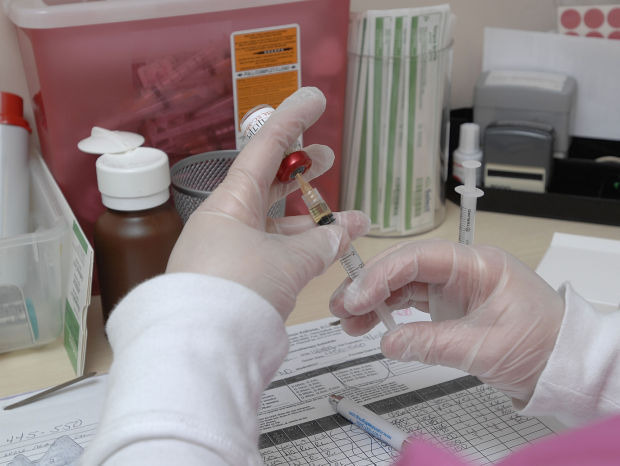Author: Dareen Siri MD
In cases of possible food allergy, based on skin test and the clinical history of a patient’s reactions (or lack thereof), blood or serum testing, called Immunocap IgE to the specific food allergen, is essential to helping us determine if a true food allergy is present. This gives us a snapshot of how much extra IgE antibody to food (freely floating in the blood) can be detected at that given time in the body.
What do I need to know about allergy blood testing?
- A separate test for each specific food is required. The blood test is available to many common and uncommon foods. Food items do need to be teased out by our clinicians. For example, there is no IgE blood test to “pizza” but there may be IgE tests available to milk, casein, tomato, wheat and even cheddar cheese.
- No preparation is necessary. Good nutrition and hydration always help in accessing a vein for blood draws!
- Medications do not need to be withheld for the blood tests. However, a person who is currently taking high doses of corticosteroids (orally or by injection) may need to wait until the course of steroids is complete.
- If a person recently has had anaphylaxis to the food, our clinicians may ask you to wait 4-6 weeks for the blood test to be done to obtain more accurate results.
What are the limitations of the allergy blood test?
If a small child is being tested, the number of tests at any given time is limited by the amount of blood that can be safely drawn. MASA clinicians will help you determine the best choices for blood tests if you are concerned with a large number of foods. The blood tests may also need to be broken up to separate sessions a few weeks apart.
Unfortunately, a high IgE level, even 500g/dL or more, may cause “white noise” when the tests are run and result in false positive results. Elevated IgE levels are common in people with atopic dermatitis or eczema. This typically will result in low level (Class 1) positives on a blood test. A false positive means that a true allergy to a food is not present. Our clinicians take into consideration your total IgE level when interpreting results of blood tests.
For example:
Specific peanut IgE 0.5 kU/L, total IGE 6,000 = Peanut allergy is questionable
Specific peanut IgE 1.2 kU/L, total IGE 28 = Peanut allergy is more likely
For peanut and some additional foods, an extra layer of blood testing is utilized called “Component Resolved Diagnostics” testing, which gives us a breakdown of the specific peanut proteins that you or your child has detectable IgE antibodies to. (Component resolved diagnostic testing can help diagnose your food allergy. Hyperlink)
What are scenarios in which allergy blood testing may precede allergy skin testing?
- Blood testing may precede skin testing if the clinical history is strong enough to suggest that there is a likelihood of a food allergy present.
- Blood is being drawn for other reasons.
- A person did not react to a control skin test due to flattened skin responsiveness, perhaps due to being on antihistamines or other medicine that blunt the skin test accuracy.
- A person cannot withhold antihistamines for 4-10 days to undergo skin testing.
- A person has hyperreactive skin, such as in the case of those with dermatographism. Those who have chronic hives may still be skin tested.
- A person has active inflammation on the arms or back, such as eczema or skin infection, that prevents us from testing in those areas.
- A person has been skin tested recently and has a known food allergy. Blood tests may then be useful for monitoring progression of the allergy.
Indexing Terms:
Allergy blood test, food allergy, peanut allergy, serum IgE, food IgE, false positive food allergy blood test, ImmunoCap food testing

